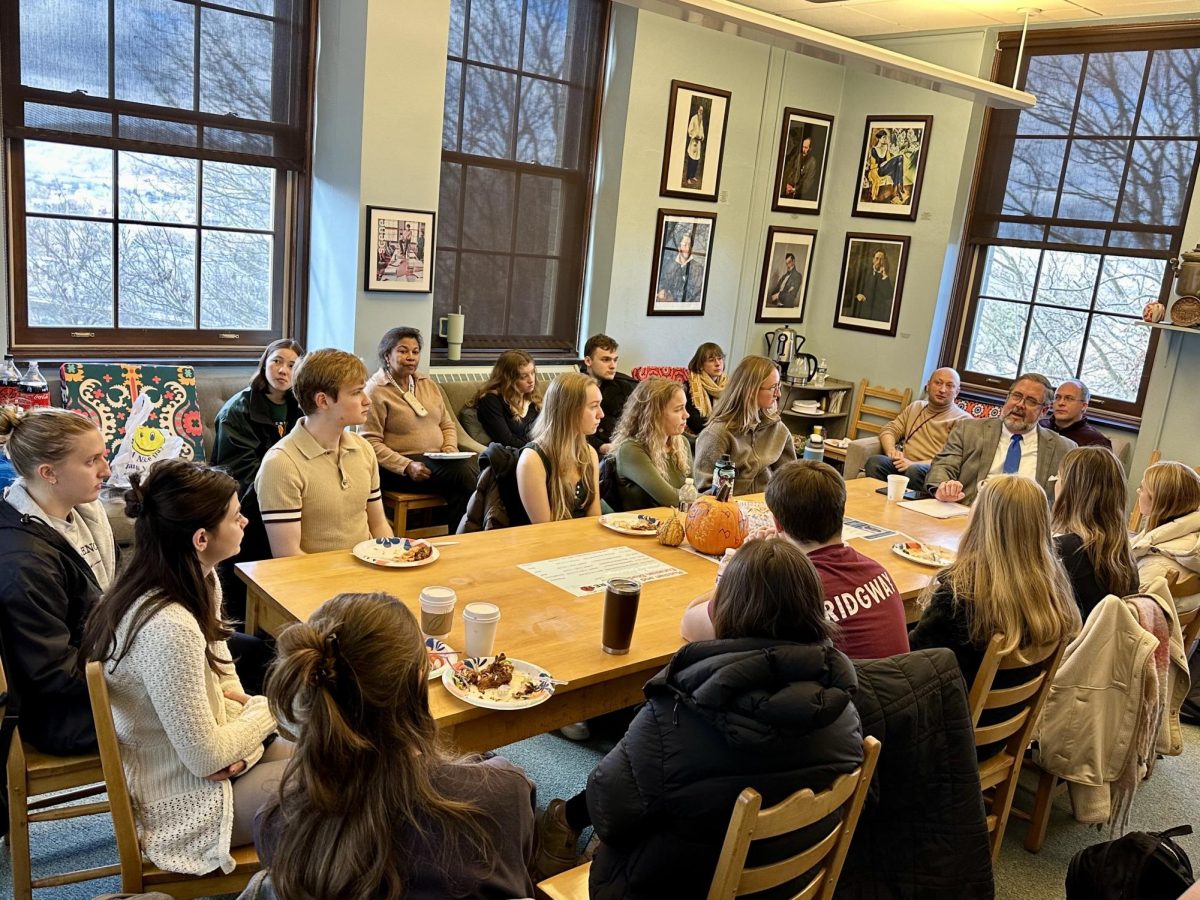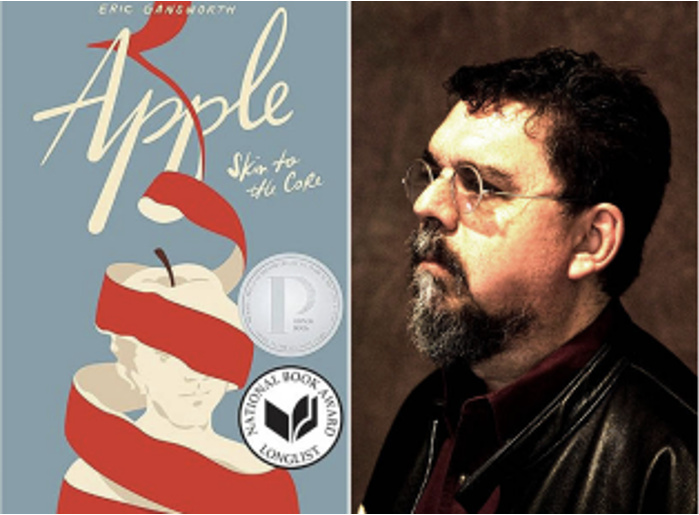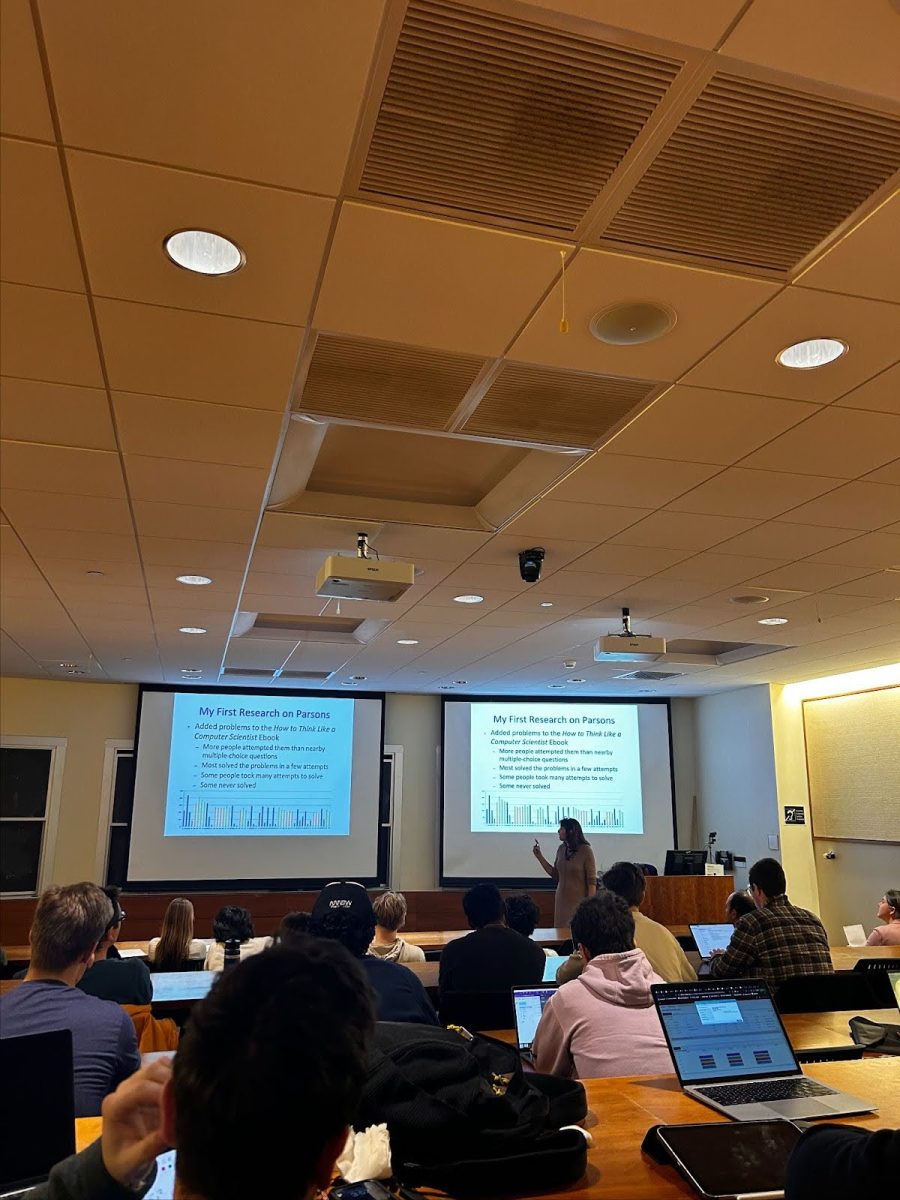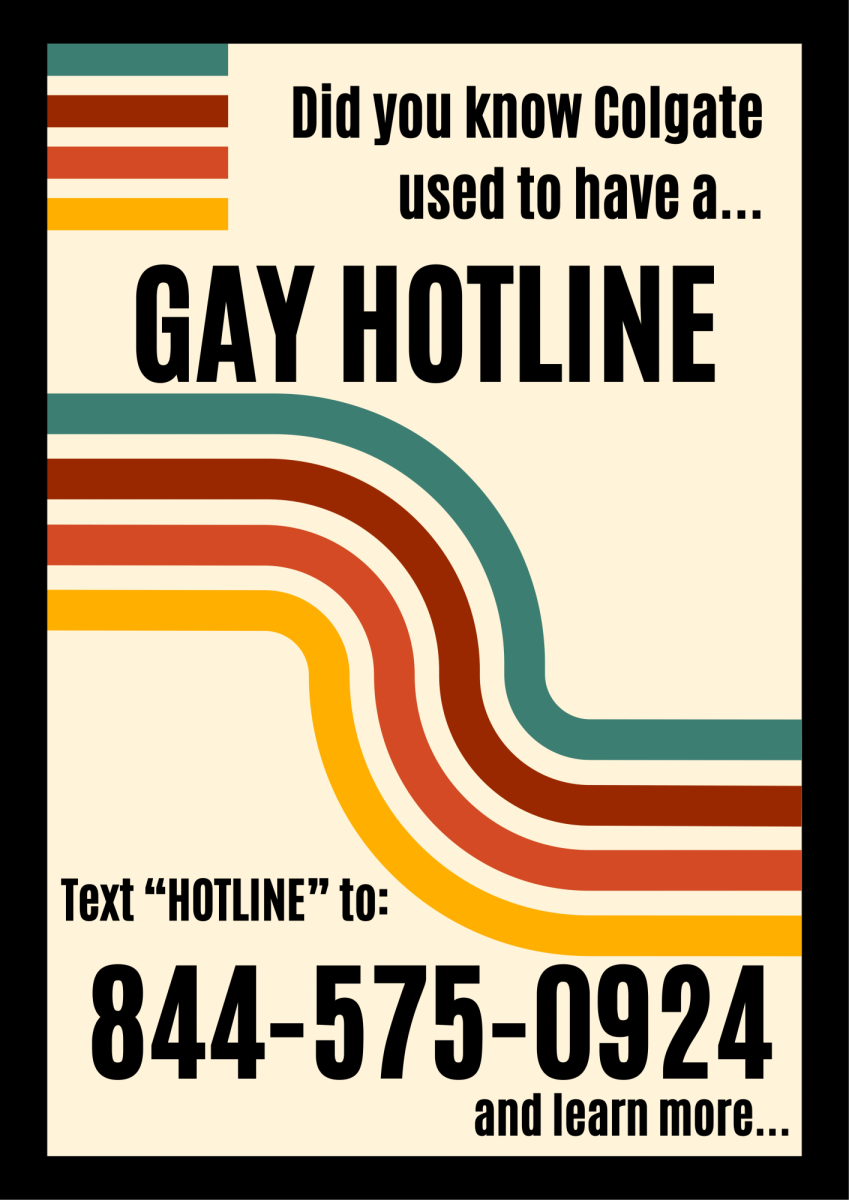Matthew Desmond, the Maurice P. During professor of sociology at Princeton University, posed a question to Colgate University students and faculty during his talk on Tuesday, Oct. 1: “I want to end poverty. Why settle for anything less?” Desmond is the author of “Poverty, by America,” which was chosen as the 2024 Colgate Community Read. During his lecture, he elaborated on the topics discussed in the book and the real-world implications of poverty that are more local than some Americans realize.
Desmond opened with a statistic showing that one in three Americans live in households making $55,000 or less every year, which adds up to roughly 108 million people. Compared to the one in nine Americans who live below the poverty line, these statistics, when placed next to each other, reveal Desmond’s notion that the fight to end poverty does not just support those who are categorized as such.
“As a lived experience, there is plenty of poverty above the poverty line,” Desmond said.
Desmond localized the impact of his findings by including anecdotes about specific people he has encountered throughout his time researching and exploring poverty in America. These stories included names and photos of individuals who are victimized by America’s capitalistic society that aims to benefit the wealthy, as the author explained. Through these anecdotes, Desmond was able to introduce the idea of financial exploitation and the way America’s economy is designed to create a system from which it is nearly impossible for those living in poverty to escape.
Desmond found that there are nearly $61 million in fees collected from low-income families each day across America. These fees are circulated back to the government, which then inevitably circulate back into the pockets of the wealthy.
The visiting author asked the audience to redirect their suspicions to the root of the cause — more specifically, those who benefit from the severe financial exploitation.
“We should have been focused on the fire. Who lit it? Who benefits from it?” Desmond said.
Desmond’s presentation revealed how the richest families in America receive up to 40% more in government subsidies than the poorest families in America. His data showed how families that fall in the top 20% of wealth receive up to $35,363 in government subsidies per year, compared to the $25,733 that is granted to families in the bottom 20%.
At the end of Desmond’s presentation, there was a Q&A period that consisted of questions from students and faculty. Many of the student-submitted questions revolved around feeling helpless or unsure as to how to crack into such a systemic and structural issue. Desmond emphasized that young people are part of the solution.
“Every social movement in this country has had young people at the forefront of it,” Desmond said.
He went on to encourage people to shop smarter and more economically-friendly, such as by buying union-made products.
Associate Professor of History Alexander (Xan) Karn was at the forefront of coordinating this event and was in charge of bringing Desmond to Colgate.
“In the case of ‘Poverty, by America,’ the committee felt strongly that this was an urgent — but also potentially difficult — conversation worth having, and that Desmond’s work could give our community a rare opportunity to talk constructively across political differences,” Karn said.
Desmond ended his talk by encouraging a sense of urgency amongst the audience. His lecture pushed the notion that poverty is a struggle that must be combated by those who are privileged enough to not experience its consequences first-hand.
“The end of poverty is going to take new policies and new movements,” Desmond said. “It also requires all of us to become poverty abolitionists.”
First-year student Abby Feuerstein shared how she felt impacted after attending the event.
“I thought that the presentation was extremely important and sensitive to current events,” Feuerstein said. “I hope that the audience will listen to [Desmond’s] lessons and hopefully give everyone the sense that they can make a difference.”












